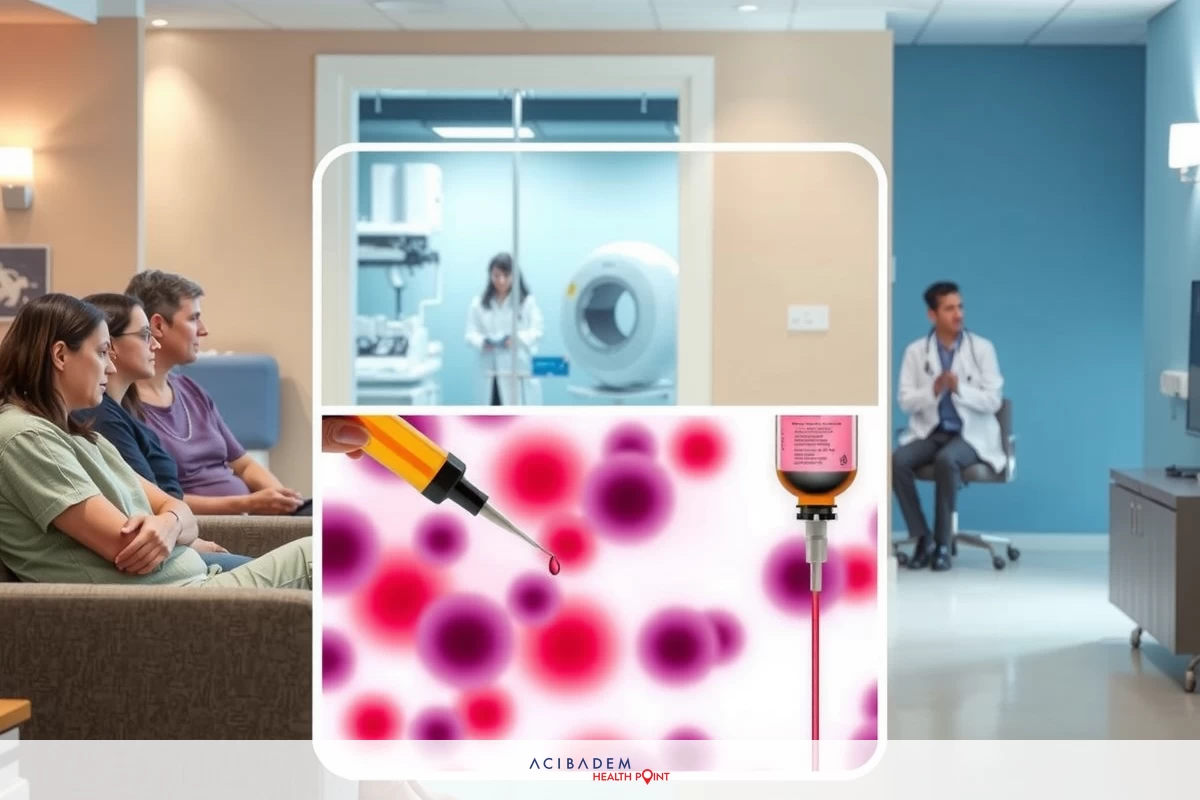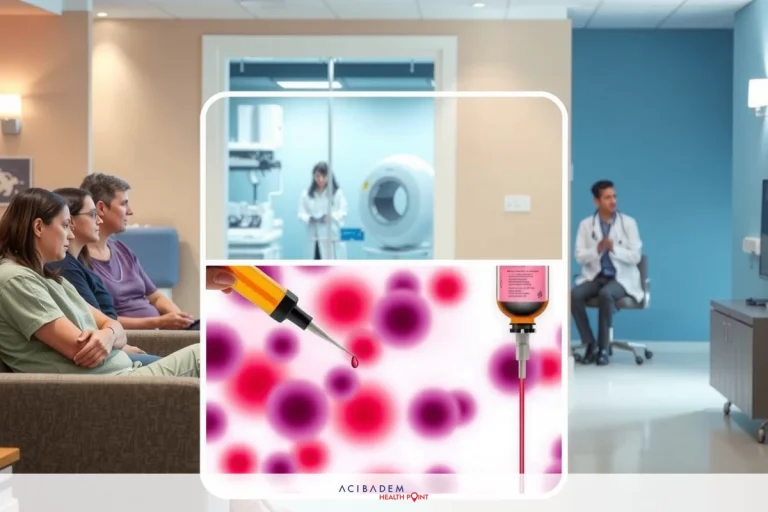What is the process for receiving CAR T-cell therapy?
What is the process for receiving CAR T-cell therapy? CAR T-cell therapy offers new hope to many people with cancer. It involves using your own cells to fight the disease. First you will meet with a doctor who will explain what to expect. They will answer any questions and make sure you are ready for the next steps. This first meeting is very important as it sets the stage for everything that comes after.
Next there are some tests before starting treatment. These tests help ensure that this type of therapy is right for you. Once all tests are done they move on to collecting your cells. The process might seem complex but each step has a purpose in preparing your body for treatment.
After cell collection you receive an infusion of modified cells back into your body. Your doctor will then keep track of how well things go and provide needed care afterward. Each part of this journey aims at giving you the best chance at recovery and health improvement.
Initial Consultation
The initial consultation is a key part of starting CAR T-cell therapy. During this meeting you will talk with your doctor about the treatment process. The doctor will explain what CAR T-cell therapy involves and how it can help you. This discussion helps set clear expectations for the journey ahead.
Your doctor will review your medical history during this first visit. They may ask questions to understand your current health status better. It’s important to share all relevant information including past treatments and any ongoing issues. This step ensures that the treatment plan fits your needs perfectly.
You might also undergo some tests as part of the consultation. These tests help confirm if CAR T-cell therapy is right for you. Your doctor will discuss these test results with you in detail later on. Understanding each aspect of this medical procedure makes it easier to move forward confidently.
Lastly use this time to ask any questions you have about receiving CAR T-cell therapy. Your doctor is there to provide answers and support throughout the process. Knowing more about what lies ahead can ease any worries or concerns you might have about this innovative treatment method.
Pre-Treatment Tests
Before you start CAR T-cell therapy pre-treatment tests are required. These tests help determine if the treatment is suitable for you. They also provide a baseline to compare your progress later on. Common tests include blood work and imaging scans.
Blood tests are crucial in this process. They check your overall health and look for any issues that need addressing first. The results give your doctor important information about how well your body can handle the medical procedure. This step ensures that you are in good shape to receive the treatment.
Imaging scans like CT or MRI may also be part of the pre-treatment requirements. These scans offer detailed pictures of areas affected by cancer. They help doctors see where CAR T-cell therapy might be most effective. Knowing these details allows them to plan the best approach for your specific case.
Other specialized tests could include heart and lung function exams depending on individual needs. Each test has its purpose in making sure CAR T-cell therapy is safe and effective for you. Completing all necessary pre-treatment steps helps set up a smooth process ahead increasing chances of success with this innovative treatment method.
Cell Collection Process
The cell collection process is a key step in CAR T-cell therapy. During this phase your cells are collected from your blood. This procedure is known as leukapheresis. It usually takes a few hours to complete.
First you will visit a clinic or hospital for the procedure. A nurse or technician will insert an IV line into your vein. Blood flows through this line and into a machine that separates white blood cells from other parts of the blood. The rest of the blood returns to your body.

This process might feel like donating blood but takes longer. You can relax during the procedure by reading or watching TV. After collection the cells are sent to a lab where they are modified for treatment use later on in CAR T-cell therapy.
CAR T-Cell Infusion
The CAR T-cell infusion marks a pivotal step in the therapy process. After your cells are modified they are ready to be infused back into your body. This medical procedure typically takes place in a hospital setting. It involves receiving the treated cells through an IV line.
Before starting the infusion you might receive medication to help with any potential side effects. Your doctor will monitor you carefully throughout this stage of treatment. The actual infusion itself is similar to a blood transfusion and usually lasts around 30 to 60 minutes.
During the procedure you may feel some discomfort or mild symptoms like fever or chills. These reactions are generally normal and expected as your body adjusts to the new cells. Medical staff will be on hand to manage any issues that arise promptly.
Once the CAR T-cells enter your bloodstream they begin their work immediately. They seek out cancer cells and aim to destroy them effectively. Monitoring continues for several hours post-infusion to ensure everything goes smoothly without complications.
Afterwards you’ll likely stay in the hospital for further observation over several days or even weeks depending on individual responses. This period allows doctors to track how well you’re responding and address any adverse effects quickly if needed—ensuring optimal outcomes from this innovative treatment approach.
Monitoring and Follow-Up
Monitoring and follow-up care are crucial after receiving CAR T-cell therapy. This phase ensures that the treatment is working as expected. It also helps in identifying any side effects early on. Regular check-ups are part of this process.
Initially you may need to visit the hospital frequently for monitoring. Blood tests will be conducted to track your progress and overall health. Doctors will look for signs that the CAR T-cells are attacking cancer cells effectively. These visits help fine-tune any additional treatments if needed.
Imaging scans might also be scheduled during follow-up appointments. These scans provide a visual insight into how well the treatment is targeting affected areas. They allow doctors to make necessary adjustments based on detailed observations of your body’s response.
You’ll receive guidance on what symptoms or issues to watch for at home too. Keeping an eye out for fever, fatigue, or other unusual signs can aid in early detection of complications. Reporting these symptoms promptly allows healthcare providers to act quickly.
Long-term monitoring includes periodic evaluations even after initial responses seem positive. The goal is not just immediate success but sustained improvement over time—ensuring that you continue benefiting from CAR T-cell therapy without facing major setbacks later on.
Frequently Asked Questions
What is CAR T-cell therapy?
CAR T-cell therapy is a medical procedure that uses your own modified cells to fight cancer.
How long does the entire CAR T-cell treatment process take?
The process can take several weeks from initial consultation to follow-up care after infusion.
Are there any side effects of receiving CAR T-cell therapy?
Yes, potential side effects include fever, fatigue, and other symptoms that should be monitored closely.
Do all patients qualify for CAR T-cell therapy?
Not everyone qualifies; pre-treatment tests help determine if this treatment is suitable for you. Disclaimer: These answers are for informational purposes only and do not constitute medical advice.








